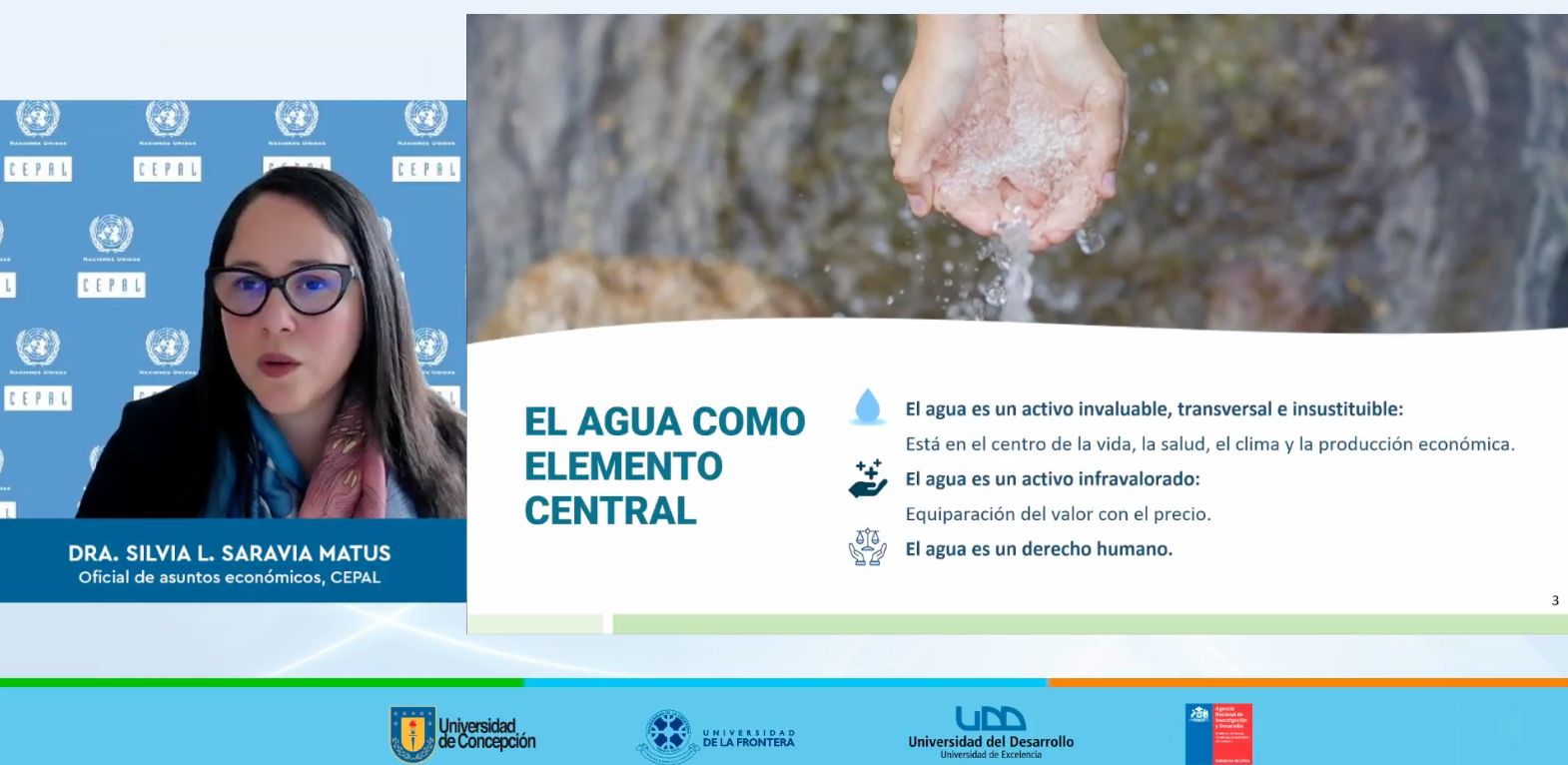ECLAC Participates in CRHIAM Seminar on Sustainable and Inclusive Water Transition
Work area(s)
Topic(s)
The seminar titled “Towards a Sustainable and Inclusive Water Transition in Latin America and the Caribbean: Challenges and Opportunities to Achieve SDG 6” was presented by Dr. Silvia Saravia Matus, Economic Affairs Officer of ECLAC’s Water, Energy, and Biodiversity Unit, in collaboration with the Water Resources Center for Agriculture and Mining (CRHIAM) on August 1, 2024. The event focused on the crucial role of water in the region, the current state of water resources, and the proposed actions to achieve Sustainable Development Goal 6 (SDG 6).

Held virtually and broadcasted live, the seminar attracted researchers, students, and professionals dedicated to studying and managing water resources in Latin America and the Caribbean. The collaboration with CRHIAM provided a platform to discuss the urgent need for sustainable and inclusive water management practices.
During her presentation, Dr. Silvia Saravia Matus highlighted the multifaceted importance of water, noting its central role in life, health, climate, and the economy. Water is essential in various productive sectors, such as agriculture, mining, hydropower, tourism, and ecosystem services, where multiple users compete for this vital resource, especially during times of scarcity. Despite its importance, water is often undervalued, leading to prices that do not reflect its true value and fail to mitigate the negative externalities associated with its use. Recognized as a human right by the United Nations General Assembly in 2010, some countries in the region have enshrined this right in their constitutions, while others recognize it implicitly through other fundamental rights.
It is clear that the region faces significant governance challenges regarding water as a finite resource. Many countries lack dedicated water ministries, resulting in a fragmented institutional landscape and suboptimal regulatory frameworks. This lack of cohesion hampers effective water management and policy enforcement. Despite progress in increasing access to potable water services over the past two decades, significant gaps remain. Approximately 51% of the LAC population lacks safely managed sanitation services, and 25% lacks safely managed drinking water services. Rural areas are particularly affected, with millions still practicing open defecation. Rising water pollution and inadequate wastewater treatment were highlighted, with only 46% of wastewater being safely treated. Infrastructure is also threatened by increasing droughts and floods due to climate change. The seminar also addressed the economic disparities in water access. Poorer households pay a higher proportion of their income for water services, and there is a need for progressive social tariffs and subsidies to ensure equitable access.
During her talk, Dr. Saravia Matus outlined four key areas for achieving SDG 6. First, ensure everyone has access to safe drinking water and sanitation by investing significantly in infrastructure. Second, transform regressive tariffs into progressive social tariffs and subsidies to support vulnerable populations, promoting responsible water consumption. Third, improve wastewater treatment and reduce water pollution, aligned with commitments made at COP 26. Finally, shift from a linear to a circular approach in water management, restoring ecosystem integrity and encouraging the adoption of cutting-edge, sustainable technologies.
The seminar concluded with a strong call to action for increased investment in water infrastructure and governance to achieve SDG 6. The anticipated outcomes include substantial socio-economic and environmental benefits, fostering overall development and resilience in the region. The event provided valuable insights and practical examples of how Latin American and Caribbean countries can address water challenges and move towards a more sustainable and inclusive future.
You can view the event recording here.